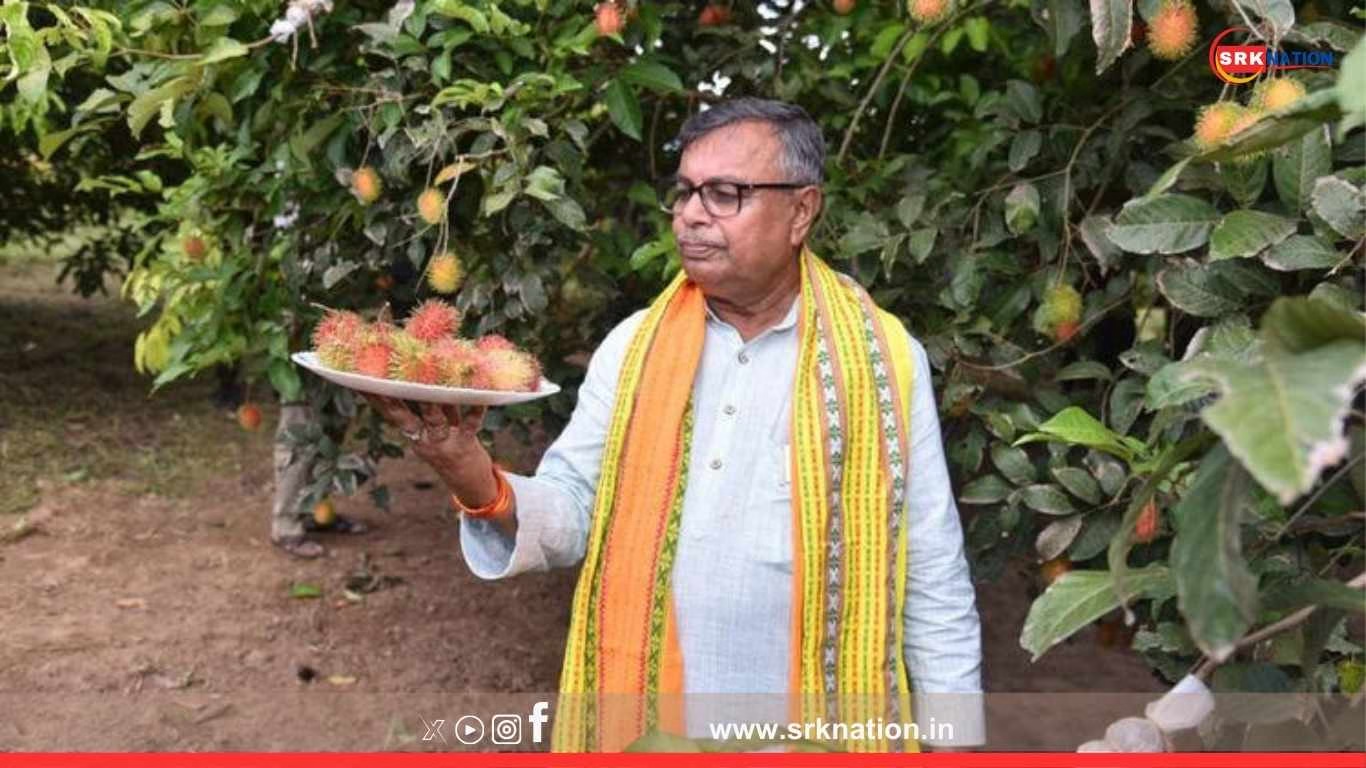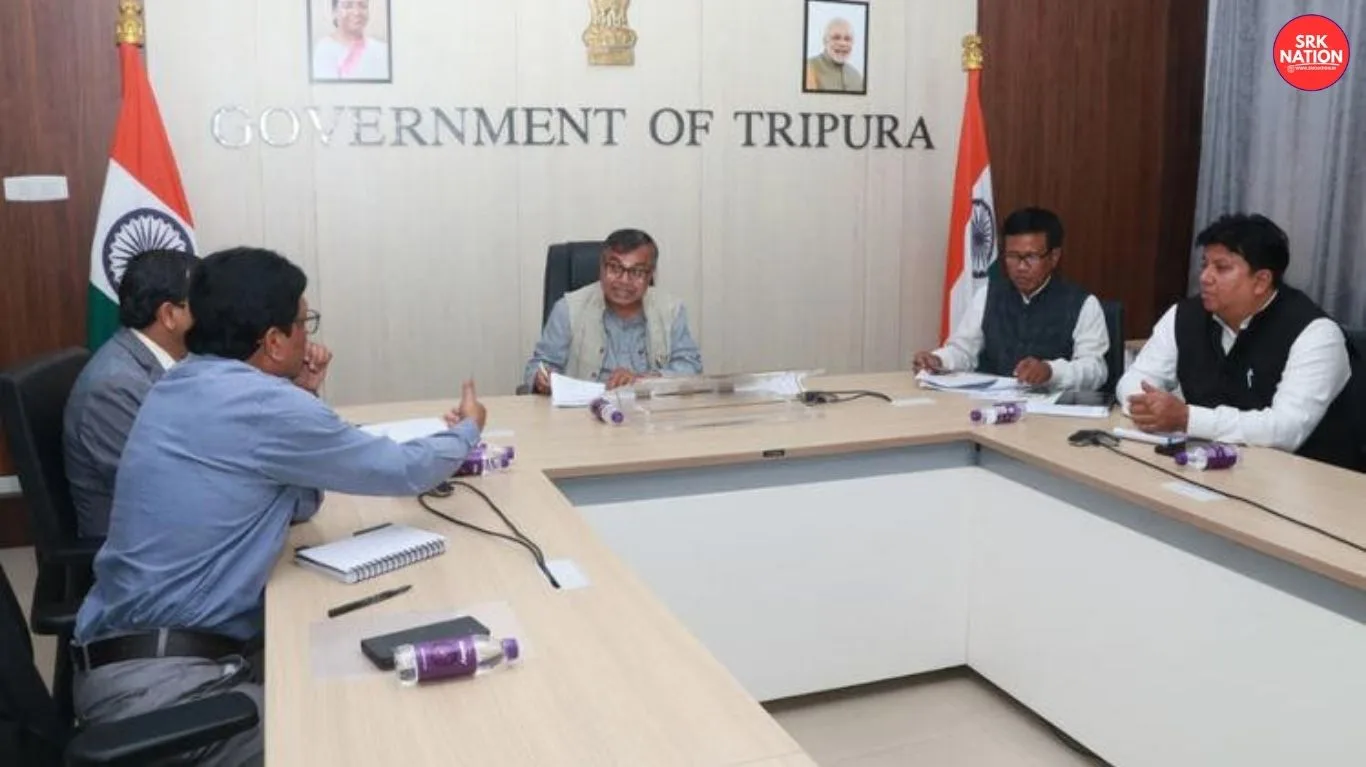Tripura is charting a new course in agricultural innovation and rural prosperity by introducing exotic fruit cultivation and expanding high-yield potato seed production across the state. The twin initiatives, spearheaded by the Department of Agriculture and Farmers’ Welfare, aim to diversify farm incomes, reduce dependency on external seed suppliers, and position Tripura as a model for sustainable agri-economy in the Northeast.
Chief Minister Dr. Manik Saha and Agriculture Minister Ratan Lal Nath have jointly endorsed the strategy, which combines climate-resilient crops with advanced farming technologies. The move is expected to benefit thousands of small and marginal farmers, especially in tribal and hilly regions, where traditional crops have struggled to deliver consistent returns.
🧭 Exotic Fruits: A New Frontier for Tripura’s Farmers
Tripura’s agro-climatic conditions are ideal for cultivating a range of exotic fruits, including dragon fruit, rambutan, avocado, passion fruit, and kiwi. These high-value crops are being introduced under the Rashtriya Krishi Vikas Yojana (RKVY) and Mission for Integrated Development of Horticulture (MIDH), with technical support from ICAR and local Krishi Vigyan Kendras.
| Exotic Fruit | Cultivation Districts | Market Potential | Support Provided |
|---|---|---|---|
| Dragon Fruit | Sepahijala, Gomati | ₹200–₹300/kg retail | Subsidized saplings, drip irrigation |
| Rambutan | Dhalai, North Tripura | ₹250/kg | Training, organic inputs |
| Avocado | West Tripura, Khowai | ₹300–₹400/kg | Shade net, soil testing |
| Passion Fruit | South Tripura | ₹180–₹250/kg | Fertigation kits, fencing |
| Kiwi | Hill slopes of Jampui | ₹350–₹500/kg | Cold storage, marketing linkages |
The state government has earmarked ₹18 crore for exotic fruit promotion in FY25, with a target of covering 1,200 hectares and training 3,000 farmers.
📊 ARC Potato Seed Expansion: Tripura’s Leap Toward Self-Reliance
Tripura has achieved record growth in potato cultivation by adopting Apical Rooted Cutting (ARC) technology, a method that produces disease-free, high-yield seed tubers. Under a MoU signed with the International Potato Center (CIP) in Peru, the state has scaled ARC farming from 104 farmers in 2023–24 to 402 farmers in 2024–25.
| ARC Potato Variety | Yield Potential (kg/kani) | Disease Resistance | Cultivation Zones |
|---|---|---|---|
| Kufri Mohan | 8,000–10,000 | High | Sepahijala, West Tripura |
| Kufri Lima | 7,500–9,000 | Moderate | Dhalai, Khowai |
| Kufri Himali | 9,000–10,500 | Very High | North Tripura, Gomati |
| Kufri Uday | 6,500–8,000 | High | South Tripura |
| Kufri Surya | 7,000–9,500 | Moderate | Teliamura subdivision |
The ARC method involves propagating plants from sterile micro-cuttings, which develop into mini-tubers. These are distributed to farmers under government subsidy, ensuring uniform quality and higher productivity.
🔍 Farmer Impact: Income, Productivity, and Sustainability
The combined impact of exotic fruit cultivation and ARC potato farming is already visible in pilot zones. Farmers have reported a 2x–3x increase in income, reduced crop failure, and better market access.
| Impact Metric | Exotic Fruits | ARC Potato Seeds |
|---|---|---|
| Income Growth | ₹60,000–₹1.2 lakh/acre | ₹40,000–₹80,000/kani |
| Input Cost Reduction | 25% via subsidies | 30% via ARC method |
| Crop Failure Rate | <10% | <5% |
| Market Linkages | Local + Export | State + Inter-state |
| Sustainability Index | High (organic inputs) | High (disease-free seeds) |
The Agriculture Department has launched mobile-based advisory services and field visits to ensure real-time support for farmers adopting these new crops.
🧠 Institutional Support and Policy Framework
Tripura’s agri transformation is backed by a robust policy framework and institutional coordination. Key stakeholders include:
- Department of Horticulture & Soil Conservation
- ICAR Research Complex for NEH Region
- State Horticulture Research Station, Nagicherra
- Tripura State Cooperative Marketing Federation (TSCMF)
| Policy Initiative | Objective | Timeline |
|---|---|---|
| Exotic Fruit Mission (EFM) | Diversify horticulture income | 2023–2027 |
| ARC Seed Production Scheme | Achieve potato seed self-sufficiency | 2022–2025 |
| Farmer Producer Organization (FPO) Support | Aggregation and marketing | Ongoing |
| Agri Export Facilitation Cell | Enable global market access | Launched 2024 |
The state has also proposed a ₹50 crore Agri Innovation Fund to support startups and agri-tech solutions in the next budget session.
📉 Challenges and Corrective Measures
Despite the success, challenges remain in scaling these initiatives statewide.
| Challenge Area | Corrective Action Planned |
|---|---|
| Lack of cold storage | 6 new units sanctioned under MIDH |
| Limited awareness | 500 village-level training camps in FY25 |
| Market volatility | Price stabilization fund under review |
| Logistics gaps | Dedicated agri-transport corridors proposed |
The government is also working with NABARD and APEDA to build export-grade infrastructure for exotic fruits.
📌 Conclusion
Tripura’s strategic push to introduce exotic fruits and expand ARC-based potato seed production marks a transformative moment in its agricultural journey. By blending innovation with inclusivity, the state is empowering farmers to move beyond subsistence and embrace prosperity.
With rising yields, diversified income streams, and growing market access, Tripura is not just cultivating crops—it’s cultivating confidence. As these initiatives scale, the state is poised to become a beacon of agri-led development in the Northeast.
—
Disclaimer: This article is based on publicly available government reports and media coverage as of August 23, 2025. It is intended for informational purposes only and does not constitute agricultural, financial, or investment advice.











